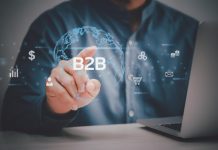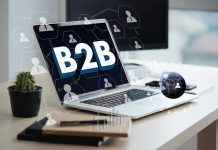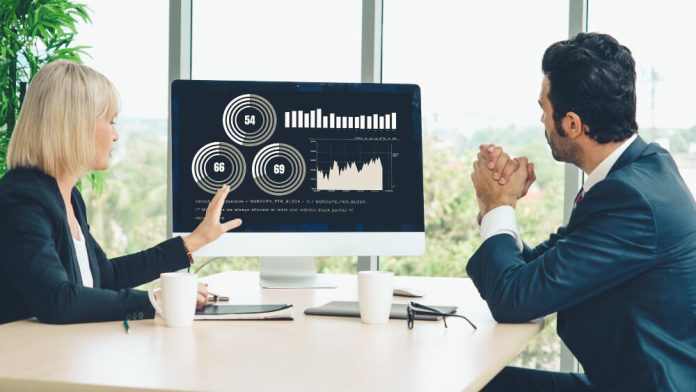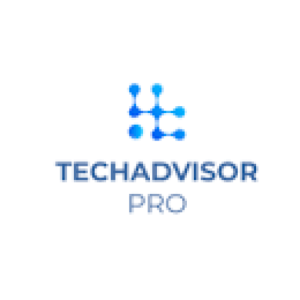B2B companies are constantly on the lookout for innovative ways to optimize their marketing efforts. One area that has seen significant transformation is lead scoring. Traditional methods of lead scoring, while still valuable, are being quickly outpaced by the power of Artificial Intelligence (AI) and Machine Learning (ML). These technologies are revolutionizing how businesses identify, prioritize, and nurture leads, ultimately driving sales and business growth.
In this blog post, we’ll dive deep into how AI and ML are reshaping B2B Lead Scoring, offering a comprehensive guide to understanding the mechanics behind this evolution, and why it matters for businesses looking to stay ahead in the competitive B2B space.
What is B2B Lead Scoring
B2B Lead Scoring is the process of assigning a value to each lead based on their interactions with your business, their fit with your target market, and their likelihood to convert into a paying customer. This process helps sales teams prioritize leads based on their potential value, ensuring they focus their efforts on the most promising opportunities.
Historically, lead scoring has relied on human judgment and basic data, such as demographics, firmographics, and past interactions. However, as businesses collect more data and face greater competition, these traditional methods are proving insufficient. Enter AI and ML.
How AI and Machine Learning Are Enhancing B2B Lead Scoring
1# Automating Lead Scoring for Improved Efficiency
One of the key benefits of AI and ML is their ability to automate lead scoring. Machine learning algorithms can analyze vast amounts of data in real-time, learning from past interactions, behaviors, and outcomes to create more accurate lead scores. Unlike traditional methods that rely on static criteria, AI-driven models adapt and improve over time as they are exposed to new data.
Example: A B2B SaaS company using AI-based lead scoring can automatically score leads based on their website behavior, email interactions, and social media engagement. The more data the AI system processes, the more accurate the lead scoring becomes.
2# Predictive Lead Scoring: Anticipating Sales Readiness
AI and ML algorithms can go beyond simply evaluating current lead behavior; they can also predict future actions based on patterns in data. Predictive lead scoring uses historical data to forecast which leads are most likely to convert into customers. By identifying patterns in how past leads engaged with your company, these algorithms help marketers predict when a lead is likely to be sales-ready, optimizing the timing of outreach efforts.
Example: If a lead downloads an eBook, attends a webinar, and visits the pricing page multiple times, AI can analyze these behaviors and predict that the lead is nearing a purchasing decision, allowing the sales team to intervene at the perfect moment.
3# Personalizing Lead Scoring Based on Specific Business Needs
In traditional lead scoring, businesses often use generalized criteria to score leads. With AI and ML, businesses can personalize their lead-scoring models based on their unique customer profiles and specific sales goals. AI enables hyper-targeted scoring by continuously refining the criteria for lead prioritization based on which factors correlate most strongly with successful conversions.
Example: A manufacturer might prioritize leads based on their purchasing history, while a digital marketing agency might focus on lead engagement with specific types of content. AI allows businesses to fine-tune their lead-scoring models to align with their unique sales and marketing strategies.
4# Leveraging Real-Time Data for Continuous Improvement
One of the biggest advantages of using AI and ML in B2B Lead Scoring is the ability to incorporate real-time data into scoring models. As new interactions occur—such as website visits, social media engagements, or email opens—AI systems can adjust lead scores immediately, providing up-to-date insights for sales teams.
Example: A lead that initially appears unqualified might suddenly show an increased level of interest, such as interacting with multiple pieces of content or engaging in a conversation with your chatbot. AI can immediately adjust the lead score, signaling to the sales team that this lead should be reevaluated.
5# Enhancing Lead Segmentation for Targeted Outreach
AI-driven lead scoring doesn’t just help you prioritize individual leads; it can also enhance segmentation by clustering leads into categories based on their behavior and likelihood to convert. By grouping leads into segments, businesses can develop more targeted and personalized outreach strategies, improving the chances of successful conversion.
Example: Leads who visit your site frequently but have not yet engaged with your sales team can be segmented for automated nurturing campaigns, while high-value leads showing purchase intent can be passed to the sales team for direct outreach.
Benefits of AI and Machine Learning in B2B Lead Scoring
1# Increased Accuracy and Consistency
AI and ML algorithms are capable of processing far more data than a human could, and they do so without bias. This results in more accurate and consistent lead scoring over time, as the algorithms continuously learn from new data to refine their predictions.
2# Time and Resource Efficiency
By automating the lead scoring process, AI and ML free up valuable time for sales and marketing teams to focus on high-priority tasks. Instead of manually evaluating leads, teams can focus on closing deals and creating more personalized campaigns.
3# Better Alignment Between Sales and Marketing
AI-driven lead scoring creates a more seamless connection between sales and marketing teams. By providing both teams with real-time, data-driven insights, AI ensures that marketing efforts are aligned with the sales team’s priorities. Sales teams can work on leads with higher conversion potential, while marketing can refine its campaigns based on what is working.
Key Challenges and Considerations
1# Data Quality and Integration
For AI and ML to work effectively, they require high-quality data. Inconsistent or incomplete data can lead to inaccurate lead-scoring models. Integrating data from various sources—CRM systems, email platforms, and website analytics—can be complex. Ensuring that data is clean, accurate, and integrated across platforms is essential for maximizing the effectiveness of AI-driven lead scoring.
2# Human Oversight
While AI and ML can enhance decision-making, human oversight is still necessary to ensure that models remain aligned with business goals. AI should be seen as a tool to assist human teams, not replace them entirely. Marketers and salespeople should continuously monitor the lead scoring models to make adjustments as needed.
Conclusion
AI and Machine Learning are no longer just buzzwords—they are driving real, transformative changes in the world of B2B Lead Scoring. By automating processes, enhancing accuracy, and providing deeper insights into lead behavior, these technologies are helping businesses identify, prioritize, and engage leads more effectively. The result? Higher conversion rates, more targeted marketing efforts, and a better alignment between sales and marketing teams.
As AI and ML continue to evolve, businesses that embrace these technologies will be in a better position to stay competitive in the ever-changing B2B landscape. Those that rely on traditional lead-scoring methods may find themselves falling behind.
Embrace the power of AI and Machine Learning in your B2B Lead Scoring strategy, and start transforming your lead generation efforts today.
I hope you find the above content helpful. For more such informative content please visit Techadvisor Pro.










